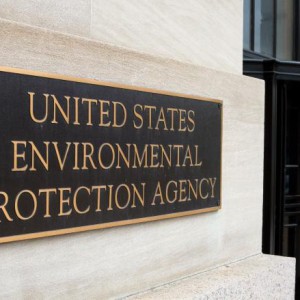Is The EPA Taking Aim At Your Property By Reinventing The Clean Water Act?

PHOTOS.COM
A proposed draft rule from the Environmental Protection Agency could expand the number of waterways covered under the Clean Water Act. The proposal is eliciting strong opposition from property owners and conservative legislators who say the rule would pave the way for Federal oversight of small-scale building projects and private land use on private property.
The EPA is denying that this is the case, claiming the new proposal doesn’t aim to expand the Federal agency’s jurisdiction or reach farther than the Clean Water Act presently does.
Technically, that appears to be true. But the devil is in the details.
A 2006 Supreme Court ruling called for the EPA to demonstrate more thorough scientific documentation in claiming protection under the Clean Water Act for small waterways or isolated lakes, ponds and wetlands. In order for the EPA to halt development of such a site, it should demonstrate that the isolated waterway is in fact located within the “significant nexus” of nearby protected navigable waters.
“Significant nexus” — what a phrase.
The proposed rule, supporters claim, simply follows through on the court’s interpretation of the law. But, by leaving all of the interpretative leeway of that phrase in the hands of the EPA, it’s not difficult to envision the agency claiming new oversight of ravines, seasonal creeks and other runoff points on private lands because, under the new interpretation, the Clean Water Act of 1972 really gave the EPA jurisdiction over all those things in the first place.
That already doesn’t sit well with the agricultural industry, and some Congressional Republicans say it shouldn’t sit well with anyone who owns rural property.
National Hog Farmer magazine reports that the rule is facing strong opposition from the National Pork Producers Council (NPPC), which represents farmers who fear they will soon face a new and costly layer of Federal regulation just to continue doing business as they’ve always done.
NPPC says the draft regulation would bring under CWA [Clean Water Act] jurisdiction man-altered and man-made water bodies, including farm ditches, tile drainage and field filter strips. Even wetlands that are “many miles away” from jurisdictional water could be regulated, according to NPPC.The Supreme Court has limited EPA’s and the Corps’ jurisdiction under the CWA in several instances, ruling that it cannot be based on a mere connection to a navigable water or extend to waters far removed from navigable waters.If the draft rule becomes final in its current form, NPPC says that EPA and the Corps [of Engineers] could potentially have jurisdiction over large tracts of state and private lands, and CWA permits would be required for a host of activities on them. Farmers could be required to obtain permits to apply manure, fertilizer or pesticides, for example.
All water flows downhill. If the EPA can retroactively extend the meaning of the Clean Water Act to include, as Bloomberg’s Amena H. Saiyid phrased it, “all natural and artificial tributary streams, lakes, ponds and wetlands that affect the chemical, physical and biological integrity of larger, downstream navigable waters,” there’s really not a square inch of land open to any use at all without first clearing a new set of hurdles.
And, an expansion of EPA jurisdiction could also give environmental groups standing to file lawsuits against any activity of any scope — from barn raising to small-scale organic farming to rock crushing — if it can claim anything on the land falls under Federal protection. In theory, someone who’s been raising a small brood of hens at his hilltop farmhouse could find himself at the defending end of an environmental lawsuit if watchdog groups can find incriminating levels of nitrates anywhere beneath the land.
“A draft rule obtained by the Science Committee is a massive expansion of EPA regulatory authority over private property, giving the agency jurisdiction over almost all man-made and natural streams, lakes and ponds in the U.S.,” wrote Representative Lamar Smith (R-Texas) earlier this month. “[S]uch a power grab undermines states’ rights and increases federal control of private property that ‘could lead to the EPA telling us what to do in our own back yard.’”
No comments:
Post a Comment
Thanks for commenting. Your comments are needed for helping to improve the discussion.